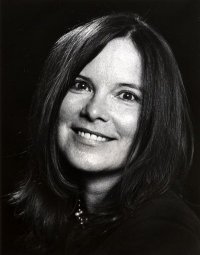Poet, Teacher and Human Rights Activist to Give Principal Address at Undergraduate Commencement 2010

Carolyn Forché has witnessed some of the most devastating social events of the 20th century. By commenting on these circumstances so eloquently in the language of poetry, she has fused the political with the personal and solidified her place as one of America’s most important and aware poetic voices. This May, the award-winning poet, translator, essayist and human rights activist will offer her unique insights to graduates and their guests as the principal speaker at The University of Scranton’s 2010 undergraduate commencement.
“A witness of the injustices inflicted upon the people of El Salvador two decades ago, Carolyn Forché used her craft – her gift of words - to tell the tale of the marginalized,” said Rev. Scott R. Pilarz, S.J., president of The University of Scranton. “We are honored to have Carolyn as our commencement speaker as the culmination of our remembrance of the 20th anniversary of the Jesuit Martyrs of El Salvador.”
Forché has coined the term “poetry of witness” to describe her politically engaged poetry. In her groundbreaking anthology, Against Forgetting: Twentieth-Century Poetry of Witness (1993), she presents poets who had written under extreme conditions, including war, exile and imprisonment. “We are accustomed to rather easy categories: we distinguish between ‘personal’ and ‘political’ poems… The distinction… gives the political realm too much and too little scope; at the same time, it renders the personal too important and not important enough. If we give up the dimension of the personal, we risk relinquishing one of the most powerful sites of resistance,” Forché said.
Forché’s first book of poetry, Gathering the Tribes, won the 1975 Yale Series of Younger Poets Award. This personal work recounted experiences of the author’s adolescence and young-adult life. Joyce Carol Oates praised Forché as a young poet of “uncommon vigor and assurance.” Forché received a Guggenheim Fellowship and traveled to El Salvador as part of Amnesty International, just in time to witness an unfolding civil war. Moved by the experience, she expressed her perspectives through poetry in The Country between Us (1981) at a time when most poets excluded politics from their work. The book was named the 1981 Lamont Poetry Selection and became a rare poetry bestseller. Reviewers called the book “a poetry of dissent from a poet outraged” and claimed that Forché’s poems “chronicle the awakening of a political consciousness and are themselves acts of commitment: to concepts and persons, to responsibility, to action.”
A year after the publication of Against Forgetting: Twentieth-Century Poetry of Witness, Forché’s own book of witness, The Angel of History, won the 1994 Los Angeles Times Book Award for poetry. The book’s five sections deal with the atrocities of war in France, Japan and Germany - with references to the poet’s own experiences in Beirut and El Salvador. The title figure, the Angel of History (a figure imagined by philosopher Walter Benjamin) can record the miseries of humanity, yet is unable either to prevent these miseries from happening or from suffering from the pain associated with them. Forché’s most recent collection, Blue Hour (2003), was a finalist for the National Book Critics Circle Award and was praised by the poet Jane Miller as a “masterwork for the twenty-first century.”
Also a noted translator, Forché has earned acclaim for her translations of poets Claribel Alegría, Georg Trakl, Robert Desnos and Mahmoud Darwish. A teacher of poetry and literature for 35 years, she holds and directs the Lannan Chair of Poetry and Poetics at Georgetown University.
Forché has received three fellowships from the National Endowment for the Arts, a John Simon Guggenheim Fellowship, a Lannan Foundation Fellowship, and other literary and teaching awards — including the Robert Creeley Award in 2005 and The Golden Rose from the New England Poetry Club in 2008. In 1998, she was presented the Edita and Ira Morris Hiroshima Foundation Award for Peace and Culture in Stockholm for her work on behalf of human rights and the preservation of memory and culture.
Forché, who has given readings and talks throughout the United States and in 18 other countries, will also receive an honorary degree from The University of Scranton at its 2010 undergraduate commencement ceremony, which will be held at the Mohegan Sun Arena at Casey Plaza at noon on May 30.






